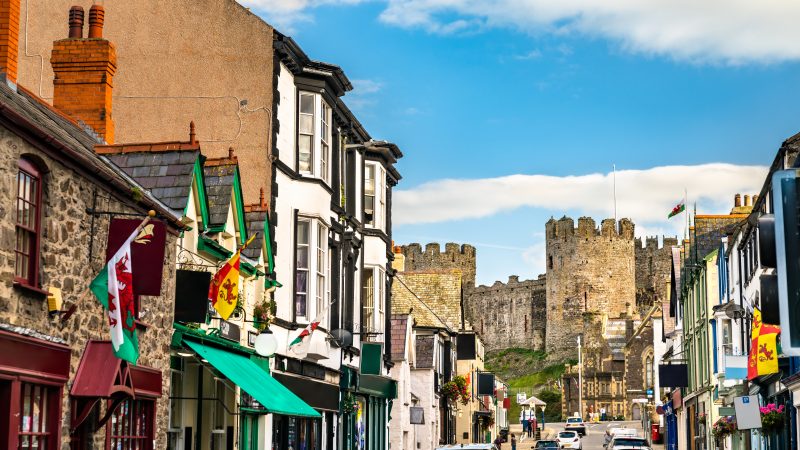
The way we work and live has changed, and so has the way we use our town centres. I grew up in what was then a market town. I now live in a market town. As a teenager, I travelled to the town I now live in most Saturdays with my best friend on the bus with just enough money for my bus fare and a little extra, in case there was something in Woolies that caught my eye.
There are few household names left on our town centre high streets. Often all that is left is a sense of decline, which is felt much more keenly than the wider physical change we’ve witnessed in our communities. Towns right across the UK face challenges – that is not unique to Wales. But what is unique in Wales is the way the Welsh Labour government is supporting our town centres to survive these challenges, including the pandemic, and move into a new and different future.
The pandemic is all-consuming at the moment, but it has not dented or changed our ambition to help transform our towns and give them a bright future. If anything, it has reinforced and reignited it. But Covid has changed the circumstances in which we are operating. For many businesses, the pandemic has helped accelerate a move to online platforms and increase the pressure on retail.
Coronavirus has placed incredible pressures on businesses across Wales, particularly those in our smaller town centres. We have made capital funding available from our £90m ‘Transforming Towns‘ programme to pay for adaptions to support trading and public safety. This includes outdoor seating, shelters and heating for cafes and pubs, outdoor waiting areas for salons, as well as signage, lighting and power for outdoor markets.
There have been some positives too. The pandemic has brought with it a fresh appreciation for green spaces and for the nature on our doorstep. We have seen reduced traffic, less congestion and, as a consequence, fewer vehicle emissions. As a result of some of the regulations put in place in Wales to curb the transmission of the virus, there has been a shift towards shopping local and outdoor markets have become more popular.
We want to lock in these changes and make them central to shaping the town centres of tomorrow. We are even more determined to put our ‘town centre first’ principle into practice. The starting point for all government policy is now: can this be done in a town centre? Can this building, this new service, be done in a high street or a town centre location? From further education and childcare to supported living and remote working hubs, the opportunities are only limited by our own imagination and creativity.
In Wales, we have continued to encourage people to work from home wherever they can. In the longer term, we want more people to have the choice to work at home or closer to home. We know a one-size-fits-all approach won’t work for everyone, but more flexible working options will help people fit work into their lives, rather than arranging the rest of their lives around their work. This should improve both their quality of work and quality of life. We are working with our social partners to make this a reality.
We are exploring the development of a network of community-based, remote-working hubs to give people more choices about where they work – beyond just working from home or the office. These would be within walking and cycling distance of people’s homes and could be used by public, private and third-sector employees. These co-working spaces, or hubs, would be based in town centres and support regeneration and economic activity while also helping boost footfall and employment as well as bringing environmental benefits by reducing commuting and car journeys.
And it doesn’t end there. We are all familiar with the long-standing, eye-sore empty properties that have been the talk of the town and a blight on our communities. We have set up a £15.2m fighting fund to ramp up enforcement and a £10m loan fund to support businesses and local authorities to take on and turn around empty properties.
A ministerial town centre action group with external expertise, supported by regional action groups is identifying and prioritising actions to boost our town centres in the short and long term. Community engagement and empowerment is central to this – this is not just about places but the people that make them. It is only right that they shape their future. Our ‘Transforming Towns’ agenda is more important than ever. For me, this is a personal and political priority. We need to secure the future of our towns so they thrive, not simply survive, and set out the clear direction that our towns are the future.
Towns are not just centres of business and trade – crucial though that is – they are places that matter to us at a much more intrinsic level. They are places that are part of who we are and where we’re from. Places that we all want to see not simply get by, but come back better – reaffirming our pride in place and bringing benefits to our local communities, economy and environment. Our towns matter. They matter to me and they matter to people all across Wales.




More from LabourList
‘As metro mayors gain power, Labour must tighten political accountability’
Letters to the Editor – week ending 22 February 2026
‘The coastal towns where young people have been left behind by Whitehall’